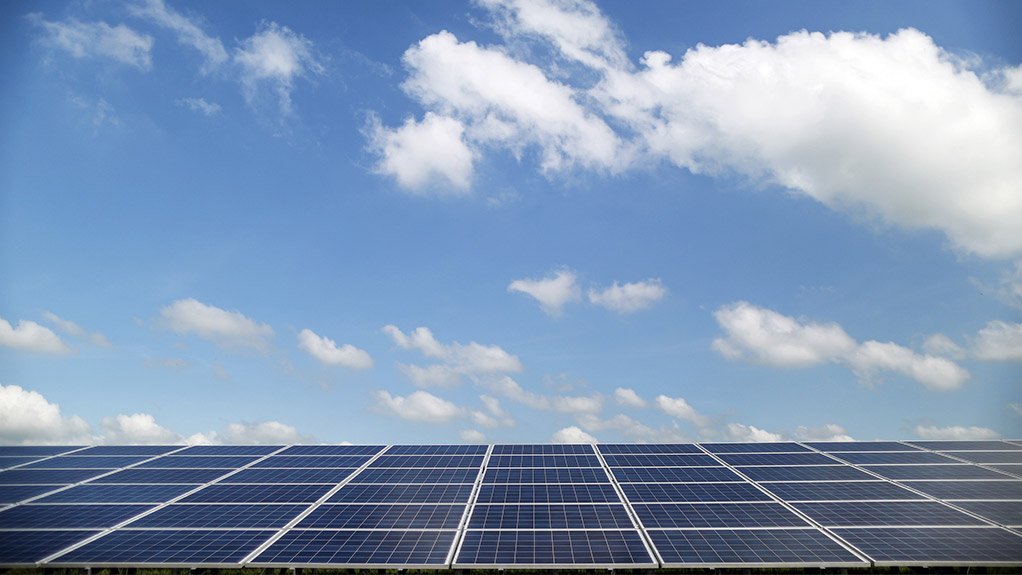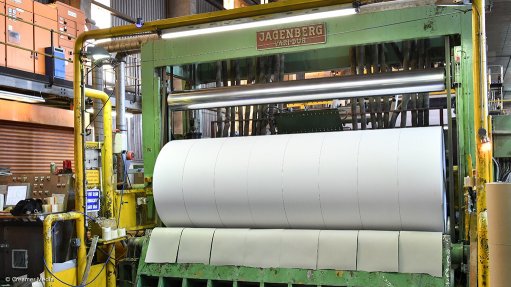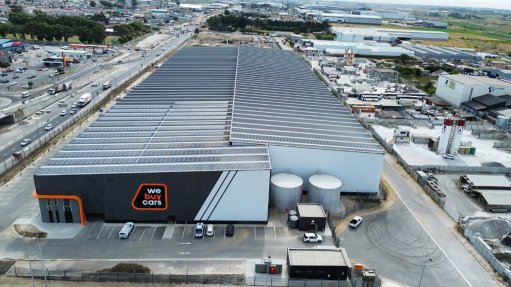Skills development essential for REIPPPP



PERFECT TIMING The insecurity of stable supply and the appropriate load profiles means that rooftop photovoltaic (PV) is in the perfect position for tremendous growth
Photo by Bloomberg
STABILITY ESSENTIAL Without a stable grid and the ability to distribute generated power, any further roll-out of the REIPPPP is pointless
Photo by Duane Daws
Although already late in reaching financial close, Round 3 projects of the South African government’s Renewable Energy Independent Power Producer Procurement Programme (REIPPPP) have been further delayed and Round 4 announcements are uncertain, owing to grid constraints and State-owned utility Eskom’s strained finances, says recruiting consultancy AltGen senior consultant Sarah Stands and MD Sean Gibson.
Gibson explains that, without a stable grid and the ability to distribute generated power, any further roll-out of the REIPPPP is pointless.
On a more local scale, in distributed generation – where the market does not have to rely on Eskom or municipal transmission and distribution – the insecurity of stable supply and the appropriate load profiles mean that rooftop photovoltaic (PV) is in the perfect position for tremendous growth.
However, growth is not an end in itself, say Stands and Gibson, adding that energy management, and a reduction in the energy intensity of industry, are just as important as creating new generating capacity, since every watt saved means one less needs to be produced.
In terms of skills and job creation, one of the basic functional and structural problems with the REIPPPP is that it is solely championed by the National Treasury,
Further, Stands says that the Department of Energy (DoE), the Department of Economic Development and the Department of Education do not seem to communicate with each other, despite the comprehensive expectations in the programme to deliver economic development outcomes and the investment in an electricity production programme worth billions.
Transmission lines need skills in high-voltage applications, and Eskom has cut training costs, bursaries and apprenticeships. Distributed generation with PV is low-voltage and the certification requirements are less onerous than those for high-voltage.
Therefore, Stands and Gibson say it would seem that technical vocational education and training colleges need to concentrate on both high-voltage and low-voltage electrical energy production, as well as electronic skills (energy management), to satisfy the need for both improved high-voltage transmission and the seemingly inevitable growth in commercial PV panels.
“In reality, there are very few skills across the board that are specific to the REIPPPP or utility-scale renewable energy; therefore, there is a need to invest more in the already established scarce and critical skills list,” Stands adds.
The Importance of Planning
The DoE needs to clearly signal its intent, the independent system market operator needs to become a reality, the responsibility for transmission must urgently be devolved and the DoE must anticipate skills demand, outlines Gibson.
The Energy and Water Sector Education and Training Authority (EWSETA) needs to create an enabling environment for the development of skills, he notes.
In the new renewable-energy industry, the EWSETA needs to show leadership, companies need to be certified, trainees need to be trained and certified, and courses need to be accredited.
There are few certified trainers in the renewable-energy space and only a handful of companies that offer courses in the specific skills, says Stands.
“Designing a home-based grid-tied PV system, with an element of energy storage (batteries) is the perfect place to start,” Gibson adds.
The components are inexpensive and roll-out can be cost effective and immediate, making a significant difference in the lives of the less privileged. “People need to be empowered to empower themselves,” he adds.
The South African Photovoltaic Industry Association, or Sapvia, has categorised the PV industry into four main market segments – utility-scale, industrial, commercial and residential, says Gibson.
The rooftop PV category falls under the commercial, residential and small-scale industrial sectors. This sector shows the most potential for employment creation, owing to the number of installations that are possible.
In terms of the programmes available, the only formal large-scale policy currently in place for the installation of rooftop PV panels is the Solar Home System (SHS) programme, established in 1999.
The SHS is part of the Integrated National Electrification Programme, which was created to provide all formal households with access to basic electricity by 2025.
According to the DoE, the SHS is mainly aimed at rural, non-electrified households, which are situated in remote areas that are difficult to connect to the national grid.
However, Stands and Gibson point out that there is limited formal policy in place for the large-scale roll-out of rooftop PV for urban residential and commercial areas.
AltGen concludes that there is a lack of government incentive to enable the installation of PV panels for residents already connected to the national grid.
Article Enquiry
Email Article
Save Article
Feedback
To advertise email advertising@creamermedia.co.za or click here
Comments
Press Office
Announcements
What's On
Subscribe to improve your user experience...
Option 1 (equivalent of R125 a month):
Receive a weekly copy of Creamer Media's Engineering News & Mining Weekly magazine
(print copy for those in South Africa and e-magazine for those outside of South Africa)
Receive daily email newsletters
Access to full search results
Access archive of magazine back copies
Access to Projects in Progress
Access to ONE Research Report of your choice in PDF format
Option 2 (equivalent of R375 a month):
All benefits from Option 1
PLUS
Access to Creamer Media's Research Channel Africa for ALL Research Reports, in PDF format, on various industrial and mining sectors
including Electricity; Water; Energy Transition; Hydrogen; Roads, Rail and Ports; Coal; Gold; Platinum; Battery Metals; etc.
Already a subscriber?
Forgotten your password?
Receive weekly copy of Creamer Media's Engineering News & Mining Weekly magazine (print copy for those in South Africa and e-magazine for those outside of South Africa)
➕
Recieve daily email newsletters
➕
Access to full search results
➕
Access archive of magazine back copies
➕
Access to Projects in Progress
➕
Access to ONE Research Report of your choice in PDF format
RESEARCH CHANNEL AFRICA
R4500 (equivalent of R375 a month)
SUBSCRIBEAll benefits from Option 1
➕
Access to Creamer Media's Research Channel Africa for ALL Research Reports on various industrial and mining sectors, in PDF format, including on:
Electricity
➕
Water
➕
Energy Transition
➕
Hydrogen
➕
Roads, Rail and Ports
➕
Coal
➕
Gold
➕
Platinum
➕
Battery Metals
➕
etc.
Receive all benefits from Option 1 or Option 2 delivered to numerous people at your company
➕
Multiple User names and Passwords for simultaneous log-ins
➕
Intranet integration access to all in your organisation




















